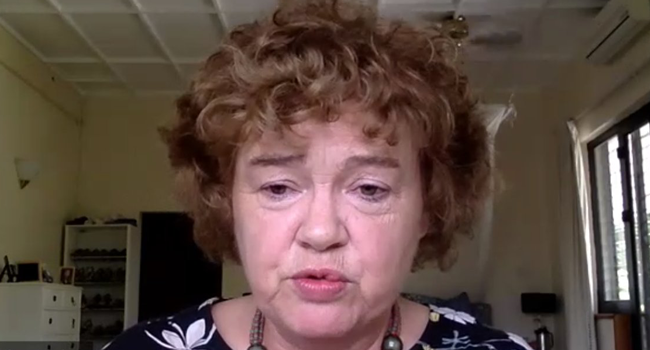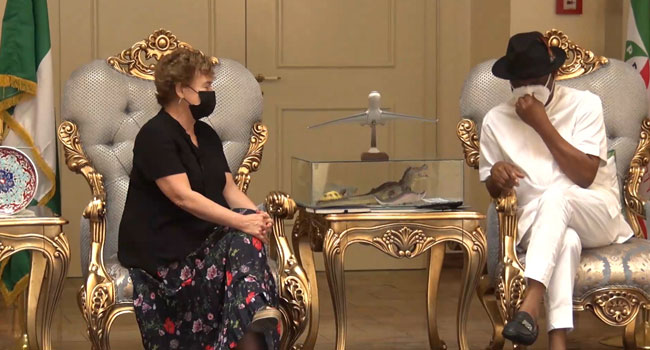
The British High Commissioner to Nigeria, Catriona Laing, has restated the UK’s commitment to helping Nigeria curb human trafficking and other forms of irregular migration.
Ms Laing voiced the commitment at an event marking the World Day Against Trafficking of People at the British High Commission in Abuja.
Attendees included the International Organisation for Migration Chiefs of Mission from Niger and Nigeria, the French Ambassador to Nigeria, Jerome Pasquier and Governor of Edo State, Godwin Obaseki.
In 2013 the United Nations General Assembly had declared July 30 as the World Day Against Trafficking in Persons.
This year’s theme, “Victims’ Voices Lead the Way”, aims to amplify the voices of victims, putting their experiences and their perspectives at the centre of counter-trafficking responses and prevention efforts.
“The UK is a proud ally of Nigeria in its efforts to tackle human trafficking and in supporting Nigerian victims and survivors through a variety of programmes that provide shelters, physical and mental health interventions, and rehabilitation and reintegration services,” Ms Laing said at the World Day Against Trafficking of People event, which was held on Thursday.
“We will remain committed to building on our partnerships in Nigeria and Niger tackle their shared challenges on trafficking.”
One key component of the UK’s efforts against human trafficking in Nigeria is The Collaboration Against Trafficking and Smuggling between Nigeria and Niger programme, also known as CATS.
The CATS programme was developed following the signing of the Sandhurst Treaty between the UK and France in 2018.
The treaty was signed by the then British Prime Minister Theresa May and French President Emmanuel Macron.
The second phase of the CATS programme was launched at the Thursday event.
CATS, which is funded and managed by the Conflict Stability and Security Fund of the UK’s Foreign Commonwealth and Development Office, will help to facilitate training and staff exchanges to upskill border staff and law enforcement upstream between Nigeria and Niger, among other objectives.
“Nigeria and Niger are both important countries along the Central Mediterranean Route, stretching from sub-Saharan Africa to the southern European coast,” Chief of Mission for the IOM in Niger, Barbara Rijks, said.
“It remains one of the most perilous in the world today.
“IOM Niger welcomes the UK Government’s support to strengthen cross border collaboration between Niger and Nigeria to enhance migration governance and ensure an effective counter-trafficking response between the two countries.”
According to the IOM, in 2020 over 96,000 African migrants crossed the Mediterranean Sea to Europe.
The Mediterranean route is perilous, with 85% to 90% of crossings arranged by traffickers, raising the risk of death, disappearance, dehydration, drowning, sexual and labour exploitation, according to a statement from the British High Commission in Nigeria.
“Trafficking in persons is still on the rise and counts as one of the top three most profitable illegal businesses worldwide,” Chief of Mission for the IOM in Nigeria, Franz Celestin, said.
“Driven by the demand for cheap labour and commercial sex, trafficking rings across borders and within countries take advantage of economic, social and political vulnerabilities to exploit their victims.
“As IOM, we welcome the UK Home Office’s Collaboration Against Trafficking and Smuggling Programme between Nigeria and Niger to enhance migration governance and an effective counter-trafficking response between the two countries.”




